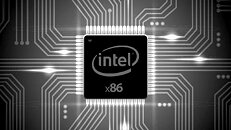- Joined
- Aug 19, 2017
- Messages
- 3,099 (1.09/day)
The x86 instruction set architecture has experienced many issues, and today's announcement is no exception. Yesterday morning, the Linux kernel received an urgent set of patches that are supposed to fix "yet another hardware trainwreck," as Thomas Gleixner, the kernel developer, describes. This time, the problem occurs with the high precision event timer (HPET) that stops once x86 processors reach PC10 idle state. In that event, the timer stops even when the OS/kernel uses it and could potentially cause a vulnerability inside a processor that an attacker can exploit. The problem has been known for quite a while since, in 2019, the Linux kernel started removing HPET functionality from some Intel processors.
The priority of this patch for Linux Kernel version 5.15-rc5 is high and marked as an urgent update. A reliable hardware timer and an interrupt are a must for the proper function of a processor. The hardware fix for this will not happen soon, so the Linux kernel has to adapt to it and create a solution at the software level. According to Mr. Gleixner, "The probability that this problem is going to be solved in the forseeable future is close to zero, so the kernel has to be cluttered with heuristics to keep up with the ever growing amount of hardware and firmware trainwrecks. Hopefully some day hardware people will understand that the approach of "This can be fixed in software" is not sustainable. Hope dies last..."

View at TechPowerUp Main Site
The priority of this patch for Linux Kernel version 5.15-rc5 is high and marked as an urgent update. A reliable hardware timer and an interrupt are a must for the proper function of a processor. The hardware fix for this will not happen soon, so the Linux kernel has to adapt to it and create a solution at the software level. According to Mr. Gleixner, "The probability that this problem is going to be solved in the forseeable future is close to zero, so the kernel has to be cluttered with heuristics to keep up with the ever growing amount of hardware and firmware trainwrecks. Hopefully some day hardware people will understand that the approach of "This can be fixed in software" is not sustainable. Hope dies last..."

View at TechPowerUp Main Site






